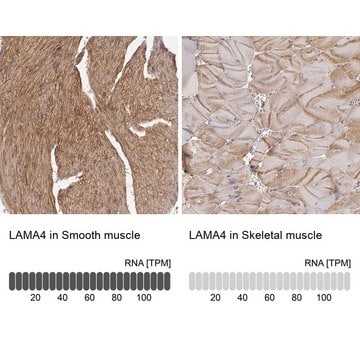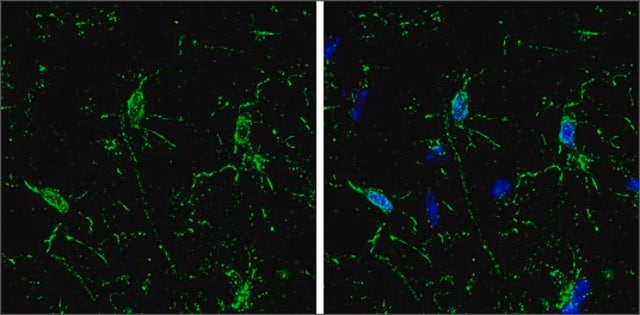MAB3418A5
Anti-MAP2 Antibody, clone AP20, Alexa Fluor™ 555 Conjugate
clone AP20, from mouse, ALEXA FLUOR™ 555
Synonym(s):
Microtubule-associated protein 2, MAP-2, MAP2
About This Item
Recommended Products
biological source
mouse
Quality Level
conjugate
ALEXA FLUOR™ 555
antibody form
affinity purified immunoglobulin
antibody product type
primary antibodies
clone
AP20, monoclonal
species reactivity
rat, Xenopus, bovine, chicken, human, quail, mouse
technique(s)
immunocytochemistry: suitable
isotype
IgG
NCBI accession no.
UniProt accession no.
shipped in
wet ice
target post-translational modification
unmodified
Gene Information
chicken ... Map2(424001)
frog ... Map2(780043)
human ... MAP2(4133)
mouse ... Map2(17756) , Map2(281294)
rat ... Map2(25595)
General description
Application
Quality
Immunocytochemistry Analysis: A 1:100 dilution of this antibody detected MAP2 in rat E18 primary cortex cells.
Target description
Physical form
Legal Information
Not finding the right product?
Try our Product Selector Tool.
Storage Class Code
12 - Non Combustible Liquids
WGK
WGK 2
Flash Point(F)
Not applicable
Flash Point(C)
Not applicable
Certificates of Analysis (COA)
Search for Certificates of Analysis (COA) by entering the products Lot/Batch Number. Lot and Batch Numbers can be found on a product’s label following the words ‘Lot’ or ‘Batch’.
Already Own This Product?
Find documentation for the products that you have recently purchased in the Document Library.
Our team of scientists has experience in all areas of research including Life Science, Material Science, Chemical Synthesis, Chromatography, Analytical and many others.
Contact Technical Service







